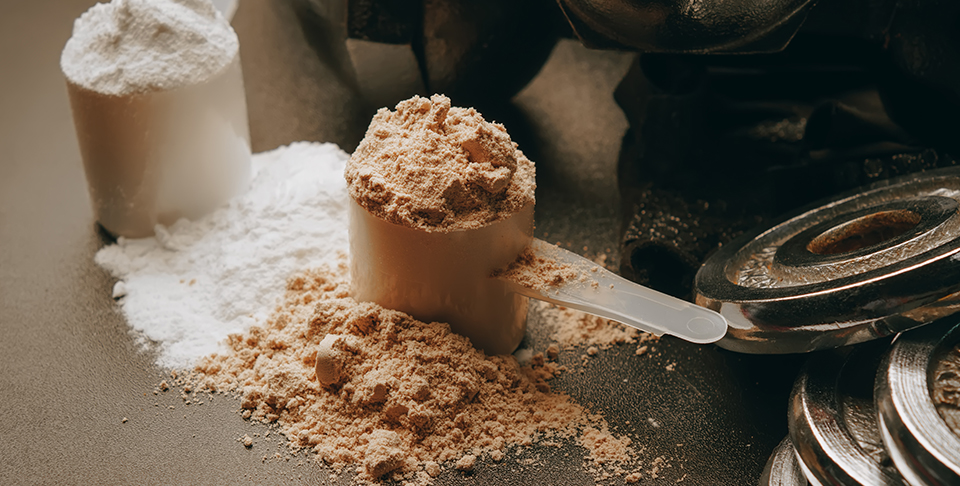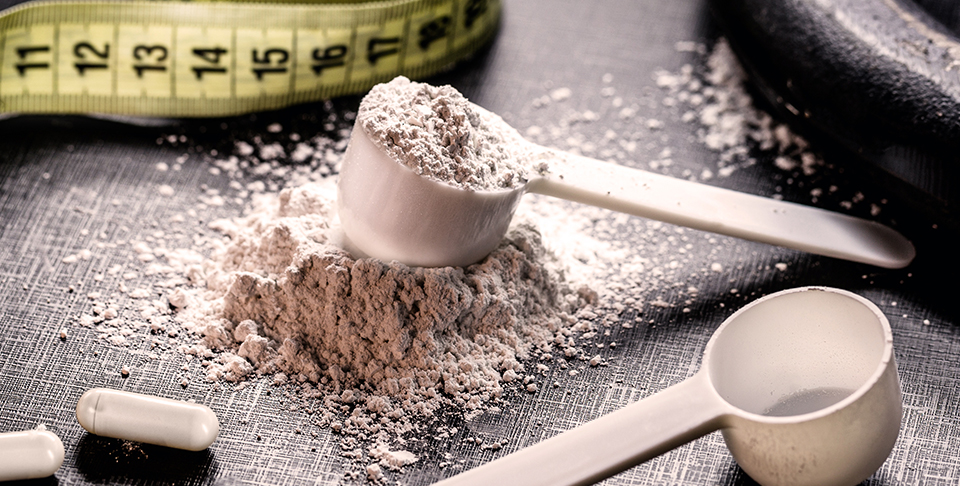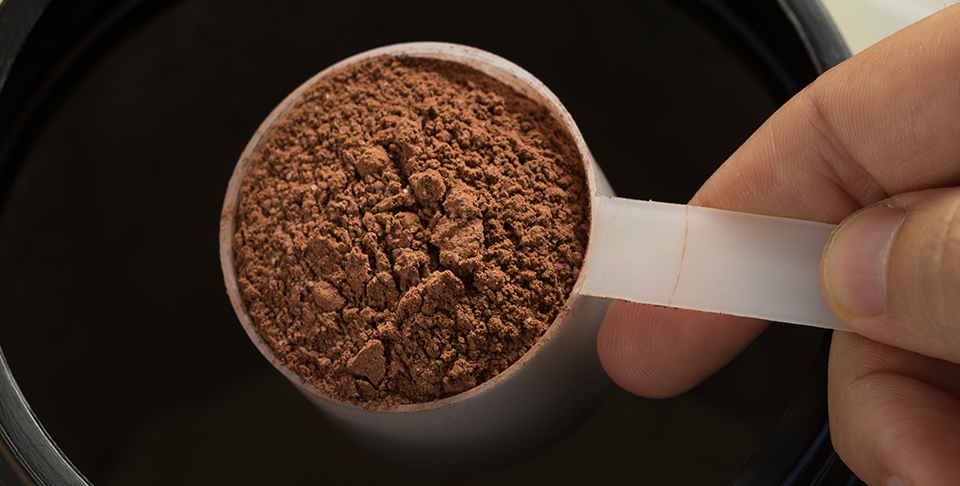Free Shipping - 48hrs Only | Use Code: FREESHIP
Ends 26/04 11:59PM AEST Min spend $79
Quick Summary
- BCAAs consist of three essential amino acids—leucine, isoleucine, & valine—that play key roles in muscle growth, energy production, & recovery.
- Whey Protein, derived from milk, is a complete protein that contains all nine essential amino acids. This complete protein promotes muscle growth & recovery, making it a crucial supplement for athletes.
- The combined use of BCAAs & Whey Protein can optimize muscle growth & recovery.
- This combination is particularly beneficial for hard-training athletes or those engaged in high-intensity workouts.
- The author's personal experience underscores the benefits of supplementing with both BCAAs & Whey Protein as part of a regular workout routine.
- Consuming BCAAs during & immediately after workouts can help reduce muscle breakdown & speed up recovery.
- At any time including post-workout, Whey Protein serves as an excellent source for replenishing nutrient levels & stimulating muscle growth.
- The timing of the supplements can also be crucial, with BCAAs taken during or immediately post-workout & Whey Protein consumed 30-45 minutes later.
- The combination of both BCAAs & Whey Protein can help reach fitness goals faster, as experienced by the author.
- Individuals' results may vary based on body type, fitness level, & other factors, making experimentation & personalization key.
- If forced to choose between BCAAs or proteins. Protein would be best due to its complete amino acid profile.
- The ultimate decision between BCAAs, Whey Protein, or their combination depends on individual fitness goals, dietary needs, & workout intensity.
- For hard-training individuals, a mix of both may, & likely shall yield the best results.
I. Introduction
The world of fitness & nutrition is teeming with various supplement types, each promising optimal results. Two of these, Branched-Chain Amino Acids (BCAAs) & Whey Protein, often spark debates among the fitness community & experts. Let's delve into what they are & how they affect our health & fitness journey.
II. Unpacking BCAAs
BCAAs are a group of three essential amino acids: leucine, isoleucine, & valine. They are termed 'essential' because the body cannot produce them & must get them from food or supplements. These amino acids play vital roles in muscle growth, energy production, & recovery. When taken correctly, BCAA supplements can boost performance & promote muscle-building & recovery. Reputable BCAA supplements like Elemental Nutrition Reclaim and EHP Labs Beyond are known for their quality & effectiveness.
III. Exploring Whey Proteins
Whey protein is a complete protein sourced from milk during the cheese-making process. It's packed with all nine essential amino acids, making it particularly beneficial for muscle growth & recovery. Consumed as a supplement, whey protein is used both as a daily staple, plus used post-workout to repair & build muscle tissues. Optimum Nutrition 100% Whey Gold Standard & Pure Supps Pure Whey are popular choices in Australia for their high quality.
IV. BCAAs vs. Whey Protein: A Comprehensive Comparison
BCAAs & whey protein offer similar benefits, such as promoting muscle growth & recovery. However, whey protein, being a complete protein, provides a more comprehensive profile of essential amino acids. The cost of these supplements can vary, with BCAAs typically being more affordable. You might choose one over the other depending on your dietary restrictions or preferences. Whey protein is a dairy product, whereas BCAAs may be vegan-friendly.
V. Expert Opinions
Many nutritionists & fitness trainers recommend a balanced diet as the best source of protein & BCAAs. They often suggest supplements like BCAAs & whey protein for those with increased nutritional needs, such as athletes or people recovering from illness or injury.
VI. Real-Life Stories
Success with either BCAAs or whey protein is subjective & varies from person to person. Some people report seeing improvements in their muscle growth & recovery time with BCAAs, while others find similar or better results with whey protein. The key is to find what works best for your body & fitness goals.
VII. BCAAs vs Protein: My Personal Story
As a regular gym-goer, I have been incorporating both whey protein & BCAAs into my regimen. My routine involves working out four days a week & ensuring I get quality nutrition every day. I take Rule 1 R1 Whey Blend, a blended whey protein, three times a day, seven days a week. It has become a reliable source of high-quality sustained-release protein for me, offering a balance of amino acids to support my muscle growth & recovery.
On my workout days, I supplement this with Elemental Nutrition Reclaim BCAAs (which also contains l-glutamine, l-citrulline & electrolytes), used intra-workout & post-workout. I have found this addition particularly beneficial. The BCAAs seem to amplify my muscle-building efforts, while also helping to speed up my recovery time significantly.
The combined use of whey protein & BCAAs has been key in reaching my mass gain goals. Now I understand that each person's experience may vary, but this combination after some trial & error has proven to be effective in my journey.
VIII. BCAAs vs Protein: Frequently Asked Questions
- Can I Use Both BCAAs and Whey Protein Supplements? Yes, they can be used together, I'd recommend as described above that whey protein is used every day whilst Your BCAA is taken on training days at workout time.
- Are There Specific Brands That Are Better? This depends on individual needs & preferences. However, Elemental Nutrition Reclaim & EHP Labs Beyond BCAA for BCAA supplements are excellent, & Optimum Nutrition 100% Whey Gold Standard, Rule 1 Whey Blend & Pure Supps Pure Whey for whey protein powders, can be recommended.
- Are There Natural Sources of BCAAs & Whey Protein? Yes, both can be found naturally in food. However, taking supplement form may be an easier and more cost-effective way to get the higher amounts required.
- Can BCAA Replace Whey Protein? No, a BCAA can't replace whey protein entirely as they lack other essential amino acids. In saying this they still can be very beneficial if you are an athlete or regularly working out.
- Do I Need BCAA If I Take Whey Protein? Not necessarily, whey protein already contains BCAAs. Taking BCAAs though around workout times has been scientifically shown to be beneficial.
- What quantity of BCAAs is best? 7g of a 2:1:1 ratio BCAA once daily intra/post workout is a sensible beneficial amount.
- Can I Take Whey Protein & BCAA Together? Yes. For hard-training athletes, this may be optimal. But for regular individuals who are not working out regularly, it is not necessary as whey protein contains BCAAs.
- What's the Best, BCAA or Whey Protein for Muscle Growth? Both can aid muscle growth, but whey protein provides a more complete amino acid profile. Taking both BCAAs & whey protein at different times of the day may produce your best muscle-building results.
- What's the Best, BCAA vs Whey Protein for Weight Loss? Both can support weight loss as part of a balanced diet & exercise program. It is worth noting that BCAAs contain very few calories when compared with protein, thus if in a calorie deficit or fasting BCAAs are an excellent option.
- What's the Best, BCAA vs Whey Protein Post-Workout? Both can aid in recovery, & whilst whey protein offers a broader range of essential amino acids. BCAAs are ideal to be taken post-workout. One excellent option may be to consume your BCAA intra/immediately post-workout, followed by your protein powder 30-45 minutes later.
IX. Conclusion
Navigating the realm of fitness & nutrition supplements, the decision between BCAAs & whey protein ultimately lies in your personal fitness objectives, dietary needs, & workout intensity.
For those committed to more strenuous training regimens, the collective use of both BCAAs and whey protein may offer the most substantial benefits. BCAAs can help mitigate muscle breakdown & expedite recovery during & after intense workouts, while whey protein serves as an excellent source for replenishing nutrient levels & stimulating muscle growth at all times as well as post-workout.
Remember, these supplements are not intended to replace a balanced diet but are designed to enhance & bolster your overall nutritional strategy. For the hard-training individual, strategically integrating both BCAAs and whey protein can optimise muscle growth, recovery times, & overall performance. This option as it is for me may also be your best choice.
X. References
- American Council on Exercise, 2020. "Dietary Supplements: A Complete Guide to BCAAs"
- International Society of Sports Nutrition, 2017. "Position Stand: Protein and Exercise"
- European Journal of Applied Physiology, 2018. "Effects of Whey Protein Supplementation on Muscle Mass and Strength"
- Journal of the International Society of Sports Nutrition, 2017. "Branched-Chain Amino Acid Supplementation and Exercise-Induced Muscle Damage in Exercise Recovery: A Meta-Analysis of Randomized Clinical Trials"
- Journal of Nutrition and Metabolism, 2016. "Whey Protein Supplementation Improves Body Composition and Cardiovascular Risk Factors in Overweight and Obese Patients: A Systematic Review and Meta-Analysis"
- Academy of Nutrition and Dietetics, 2019. "Protein and the Athlete - How Much Do You Need?"
- International Journal of Sport Nutrition and Exercise Metabolism, 2016. "Ingestion of a Protein Hydrolysate is Accompanied by an Accelerated in Vivo Digestion and Absorption Rate When Compared with its Intact Protein"
- National Institute of Health, 2020. "Branched-Chain Amino Acids: Health Information Sheet"
- Nutrition Reviews, 2018. "Whey Protein Supplementation and Higher Protein Diet Credit Greater Lean Mass Gain in Resistance-Trained Women: A Randomized Trial"
- Sports Medicine, 2017. "Dietary Protein for Training Adaptation and Body Composition Manipulation in Track and Field Athletes"





